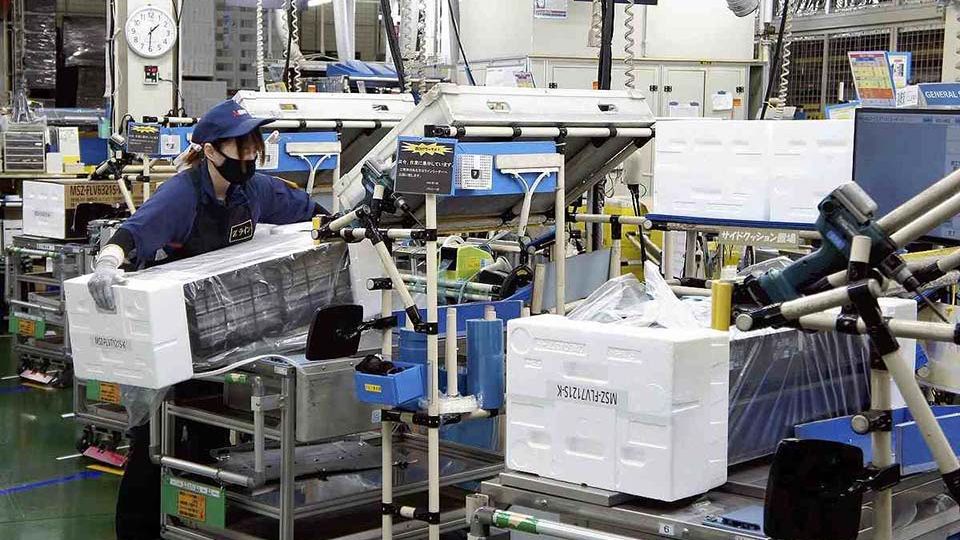July 15, 2024
TOKYO – Air conditioners equipped with AI (artificial intelligence) systems that allow them to conserve more energy are gaining popularity among consumers.
As it has become difficult to differentiate air conditioners based on their basic heating and cooling functions alone, manufacturers are proactively trying to appeal to customers based on points such as how little energy their products consume.
Mitsubishi Electric Corp., which offers the Kirigamine series of room air conditioners, is boosting its production of AI-equipped models with high energy-saving performance.
The head of the company’s main factory in Shizuoka emphasized that “AI-based functions are directly linked to the user’s comfort and energy efficiency, so this is an area where we can still differentiate our products from others.”
Mitsubishi Electric has incorporated in some of its models an AI system which studies factors such as the heat-insulating properties and airtightness of a building based on differences in indoor and outdoor temperature fluctuations and thereby predicts changes in room temperature, based on which it adjusts its operations.
By preventing the air conditioners from overcooling the air in the summer, the new models can reduce power consumption at startup by about 8% compared to conventional models.
In addition, Mitsubishi Electric is increasing the number of models equipped with a sensor capable of measuring the pulse of a person inside the room without touching them and gives that data to an AI function which guesses the user’s mood and uses it to control air temperature and airflow.
Panasonic Corp. recently introduced a function in its air conditioners that, with the push of a button on the remote control, allows AI to automatically select the operating mode and the air temperature inside the room according to the season and temperature.
The latest models are also equipped with a function that allows AI to obtain weather information from the Internet, then predict changes in indoor temperature and adjust operations.
Meanwhile, Sharp Corp. has adopted a function in its latest model that links AI to a household solar power system, allowing the AI to predict the amount of surplus power available and adjust the operations of the air conditioner.
Sharp says that, in a model case, the efficient use of surplus power could reduce consumption by as much as about 25% compared to conventional models.
Shipments up 16% in May
Domestic shipments of room air conditioners in May were 986,000 units, up 16.1% from the same month last year, according to the Japan Electrical Manufacturers’ Association.
May, which saw a succession of hot days, marked the second consecutive month of high growth in shipments of air conditioners, following an 18.8% increase in April.
Harumi Maruyama, a consumer affairs advisor, noted, “Air conditioners in the home are used for many hours. As the popularity of AI-equipped air conditioners with strong energy-saving functions is expected to continue, manufacturers will focus more on these products in the future.”

